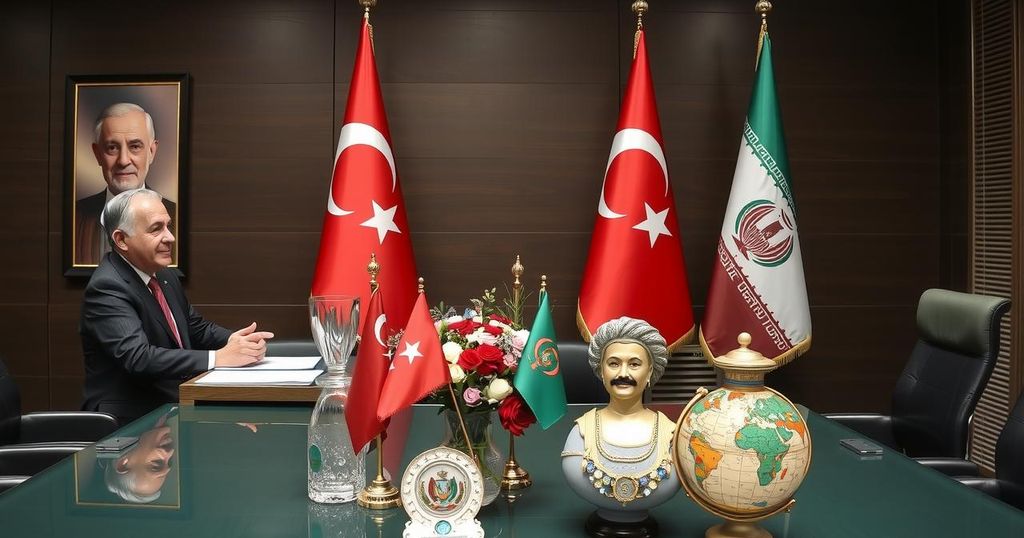Iran Enhances Economic Ties with Turkey and Egypt at D-8 Summit
Iran’s Foreign Minister Abbas Araghchi met with counterparts from Turkey and Egypt to strengthen economic ties during the D-8 summit in Cairo, emphasizing cooperation amidst a backdrop of emerging international alliances. President Pezeshkian’s attendance reflected the meeting’s significance, while discussions with Pakistan reinforced Iran’s commitment to bilateral relations and solidarity with Palestine.
Iran’s Foreign Minister Abbas Araghchi convened with his counterparts from Turkey and Egypt, Hakan Fidan and Badr Abdel Aaty respectively, in Cairo during the D-8 Organization of Economic Cooperation event. This gathering exemplifies Iran’s strategic endeavors to foster economic partnerships with nations, including those aligned with Western ideologies. Notably, Israel remained excluded from these discussions.
Alongside these crucial meetings, Iran’s President Masoud Pezeshkian arrived in Cairo, further emphasizing the significance Iran places on the multilateral discussions. During this occasion, Araghchi also met with Pakistan’s Deputy Prime Minister and Foreign Minister, Mohammad Ishaq Dar, where they affirmed the advancement of bilateral relations and underscored political and economic collaborations.
The engagements highlight a broader pattern of Iran’s participation in various multilateral economic frameworks, including BRICS and the Shanghai Cooperation Organization (SCO), which reinforce its ties with non-Western states amidst shifting global dynamics. As Iran seeks to expand its international alliances, its commitment to solidarity with Palestine was reiterated by Senator Dar during his meeting with Araghchi, setting a foundation for continued diplomatic discourse between Iran and Pakistan.
The meetings between Iran, Turkey, and Egypt signify Iran’s strategic intention to strengthen economic connections with countries in the D-8 Organization of Economic Cooperation. The D-8 itself consists of emerging economies, including Pakistan, Indonesia, Nigeria, Malaysia, and Bangladesh, reflecting a coalition of countries often seen as alternatives to Western hegemony. Amidst an evolving geopolitical landscape, Iran has been actively pursuing partnerships outside of Western influence, as demonstrated by its engagements in BRICS and the SCO, which link Iran with major powers such as Russia and China.
In summary, Iran’s recent diplomatic engagements with Turkey and Egypt underscore its dedication to enhancing economic cooperation with fellow D-8 nations. The participation of high-level officials, including President Pezeshkian and Deputy Prime Minister Dar, further illustrates Iran’s commitment to establishing solid bilateral relationships and forging alliances within a non-Western framework. Such endeavors signify Iran’s strategic pivot towards fostering broader international relations in the face of existing geopolitical challenges.
Original Source: www.jpost.com




Post Comment